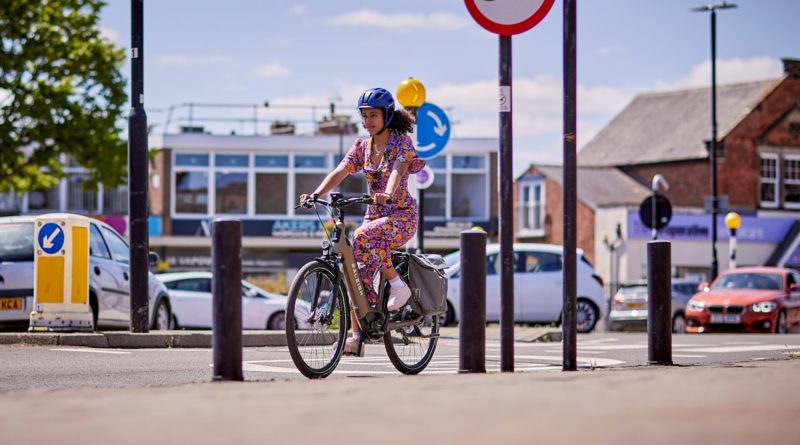Raleigh and Women in Sport encourage more women to cycle
Raleigh and Women in Sport have announced findings of research aimed at identifying challenges and targeting change which encourages and enables women to take up cycling.
Recent research carried out on behalf of the Raleigh and Women in Sport partnership found that:
- 58% of UK women – who don’t cycle regularly – did say they would be interested in cycling more in the future.
- This was highest amongst women living in urban areas and those aged between 18 to 24, with 67% and 76% respectively – it drops away significantly at 45+.
The survey, carried out with the aim of improving understanding of how cycling might be made more accessible and fun for women, also found:
- 80% of women in the UK don’t currently cycle.
- Only 20% of respondents said that they ride a bike for either pleasure, exercise or as means of transportation (excluding static / exercise bikes).
Providing some context for these numbers
- A whopping 73% of women in the UK exercise at least once a week.
Digging deeper, the survey also looked to understand the reasons why British women stopped cycling and when. The data revealed concerning insights. 1 in 5 UK women who used to cycle but no longer do, said they stopped between the age of 19-25. However, rather more positively, only 7% of those that answered said they gave up before they were 11, suggesting that cycling is already reasonably accessible for that age group.
Previous research had highlighted that over 1.5 million primary school children had not been on a bike in 2021, at all. Additionally, one in every 20 said their child had never ridden a bike, which equates to over 230,000 primary school children in the UK.
Safety the biggest barrier
UK women who don’t frequently cycle cite that feeling unsafe on the roads due to other road users was the biggest factor in not riding. 46% of respondents listed this as a factor, indicating that safety is still a huge concern and infrastructure changes are ever more necessary.
Rider training for adults (and children)
Aside from road safety, 24% said that not having confidence in their own ability to ride a bike was a factor, highlighting that more has to be done to improve bike handling and road safety skills from an early age.
Location specific challenges
When looking at the geographic locations of women who don’t cycle regularly, respondents living in the suburbs had the least access to bikes whilst those in urban areas had the best. This suggests that more needs to be done in order to make cycling more accessible across suburban areas.
This study also revealed that over half of the women in the UK who don’t cycle regularly do not have access to a bicycle. Of those surveyed, Scotland, Wales and the South East of England had the highest proportion of women without a bike, each with 59% of respondents not having access.
Audience reach
With nearly 19,000 followers on Instagram, Raleigh is using the platform to share inspiring case studies from their collaboration with Women in Sport, highlighting real-life stories where the Raleigh x Women in Sport partnership has already made a difference.



